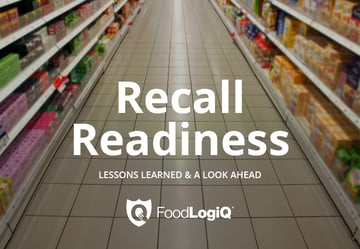If your organization ever has to deal with a recall, you know the process can be painful—especially when it comes to gathering all the supply chain data (and people) you need to reach a resolution. However, there is one way you can make the entire process significantly easier on all parties involved: creating a recall team.
What is a Recall Team and Why Do I Need One?
This is the team that will put your recall plan or program in action. Ideally, you would have the members of your recall team identified and prepared long before they’re needed. This way, they’ll be ready to immediately jump into their predefined role, and you won’t have to make any hasty decisions.
Recalls are never convenient, but sometimes they’re especially inconvenient—like when a recall occurs after-hours or during an otherwise already hectic week. Having a recall team in place ensures your organization is always prepared to handle a recall in the quickest and most effective manner.
Who Should be on Your Recall Team?
The most important member of your recall team is your recall coordinator. This is the person responsible for rallying the other team members, putting the recall protocol into action and making any necessary decisions right off the bat. Once you designate this person, you’ll also need to designate team members who can be responsible for handling the following if a recall occurs:
- Quality assurance. This recall team member or members should have a clear understanding of your supply chain traceability to ensure additional products have not been contaminated. This can help limit the scope of your recall to only the necessary offenders.
- Media liaison. Communication with the media is an important step of moving forward with the recall. This team member should be comfortable speaking on behalf of your organization, and should also have a clear understanding of how to communicate your positioning, future food safety process and what action (if any) consumers will need to take.
- Complaint investigator. Determining the exact nature of the recall and figuring out how far-reaching the damage may be is essential to helping you take control of the situation. Having a designated team member or members to investigate complaints can provide you with much-needed insight in the early stages of your recall.
- Customer liaison. Once you know the details of the recall, your recall team will need to handle reaching out to customers and explaining the process. Knowing who will tackle this task and having a plan in place for how to do so can help limit the panic and frustration early on.
- Regulatory liaison. Whether you answer to the FDA, FSIS or CFIA, one of your recall team members needs to be tasked with contacting your regulatory body immediately to report the issue and the steps being taken to correct it.
- Legal counsel. Perhaps one of the most necessary members to have on your recall team is your legal counsel. You’ll want their advice and guidance as you navigate any legal matters involved in the recall and regain industry trust.
With this team in place, you can design a recall program using recall management software that minimizes the stress and damage of a potential recall and allows you to respond in a way that is least damaging to your organization’s reputation and future.
Recalls can be stressful, but we’ve got the experience to guide you through this concern. Learn more about how to get prepared in our free resource, The Food Safety Professional's Recall Checklist!
Other posts you might be interested in
View All Posts
Food Industry
8 min read
| October 18, 2022
2022 Food Product Recall Trends
Read More
Food Industry
4 min read
| March 13, 2019
Recall Readiness: Lessons Learned & A Look Ahead
Read More
Recall
5 min read
| July 13, 2018


